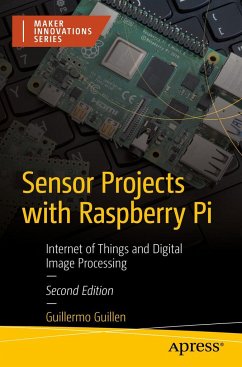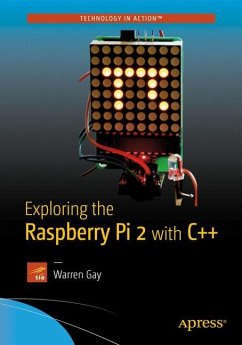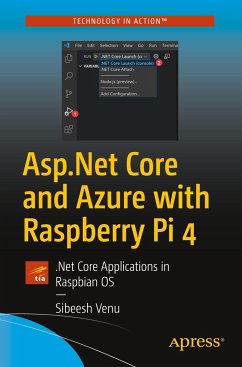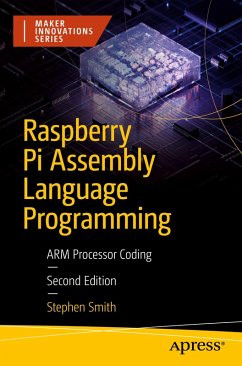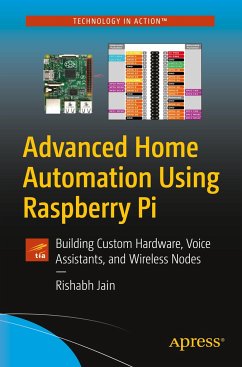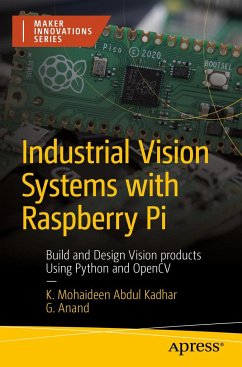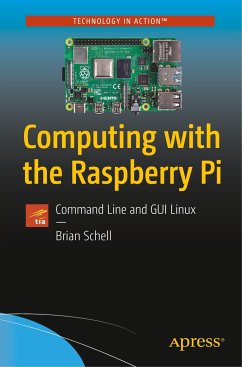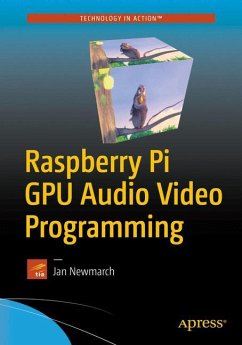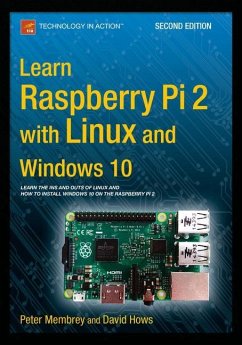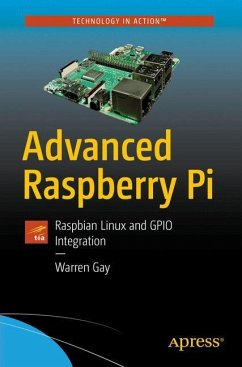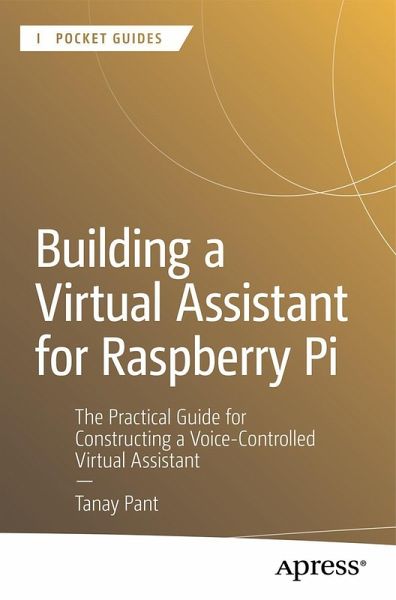
Building a Virtual Assistant for Raspberry Pi
The Practical Guide for Constructing a Voice-Controlled Virtual Assistant

PAYBACK Punkte
11 °P sammeln!
This new edition of Building a Virtual Assistant for Raspberry Pi will provide new features to your virtual assistant, Melissa, adding advanced capabilities to her. Updated to the latest Python release (Python 3), the book will follow the same structure as its previous edition with new features discussed as you move forward.After walking you through the various STTs, TTSs, and implementation of these components with the Python 3, you will learn about Large Language Models (LLMs) and how to run them on Raspberry Pi. You will build applications/modules for Melissa that will be used by the LLM. T...
This new edition of Building a Virtual Assistant for Raspberry Pi will provide new features to your virtual assistant, Melissa, adding advanced capabilities to her. Updated to the latest Python release (Python 3), the book will follow the same structure as its previous edition with new features discussed as you move forward.
After walking you through the various STTs, TTSs, and implementation of these components with the Python 3, you will learn about Large Language Models (LLMs) and how to run them on Raspberry Pi. You will build applications/modules for Melissa that will be used by the LLM. The book will feature Plugin Architecture Implementation for Melissa, allowing users to script their own interactions with Melissa. You will also enable Melissa to interact with resources on the internet. In addition to Melissa's voice controlled interface for notes management, this edition will also enable Melissa to be intelligent to assist you with your tasks.
Adding to Melissa s voice interface from the first edition, you will use an LLM to make Melissa intelligent. You will learn about function calling, providing Melissa access to tools. In conclusion, you will make a smart virtual assistant that runs on Raspberry Pi.
What You'll Learn
Implement plugin architecture to enable quicker scriptingDevelop modules for conversational interaction with the assistantRun the local LLM instance to empower Melissa with intelligenceInteract with both public and restricted APIs (Application Programming Interfaces)
Who This Book Is For
Anyone who has built a home automation project with Raspberry Pi and now want to enhance it by making it voice-controlled. The book would also interest students from computer science or related disciplines.
After walking you through the various STTs, TTSs, and implementation of these components with the Python 3, you will learn about Large Language Models (LLMs) and how to run them on Raspberry Pi. You will build applications/modules for Melissa that will be used by the LLM. The book will feature Plugin Architecture Implementation for Melissa, allowing users to script their own interactions with Melissa. You will also enable Melissa to interact with resources on the internet. In addition to Melissa's voice controlled interface for notes management, this edition will also enable Melissa to be intelligent to assist you with your tasks.
Adding to Melissa s voice interface from the first edition, you will use an LLM to make Melissa intelligent. You will learn about function calling, providing Melissa access to tools. In conclusion, you will make a smart virtual assistant that runs on Raspberry Pi.
What You'll Learn
Implement plugin architecture to enable quicker scriptingDevelop modules for conversational interaction with the assistantRun the local LLM instance to empower Melissa with intelligenceInteract with both public and restricted APIs (Application Programming Interfaces)
Who This Book Is For
Anyone who has built a home automation project with Raspberry Pi and now want to enhance it by making it voice-controlled. The book would also interest students from computer science or related disciplines.



